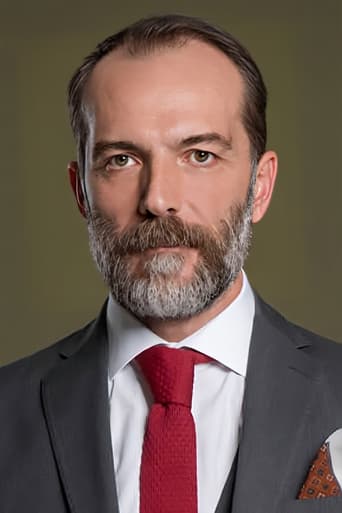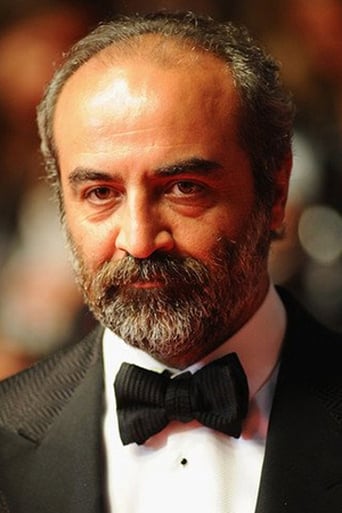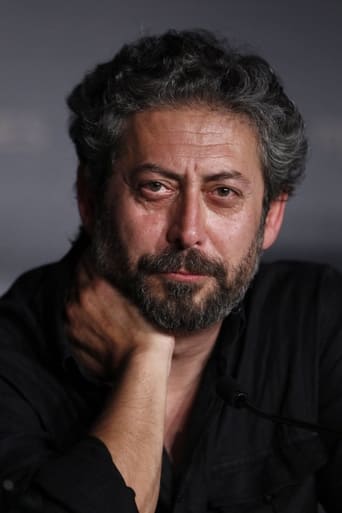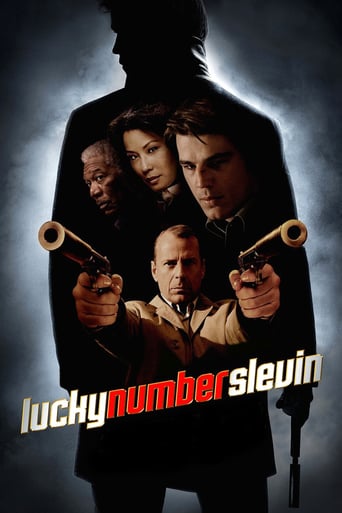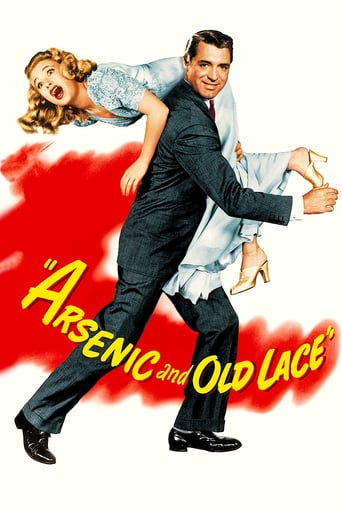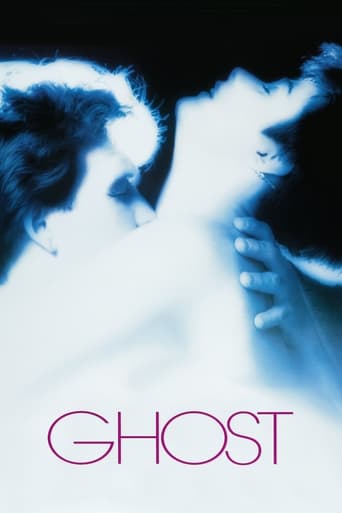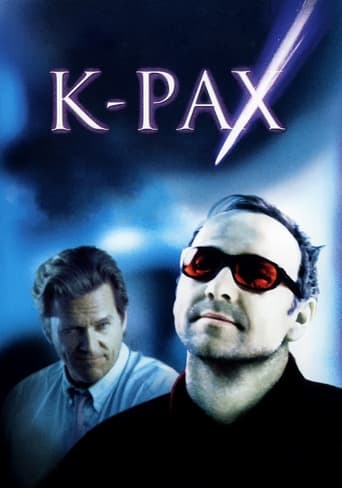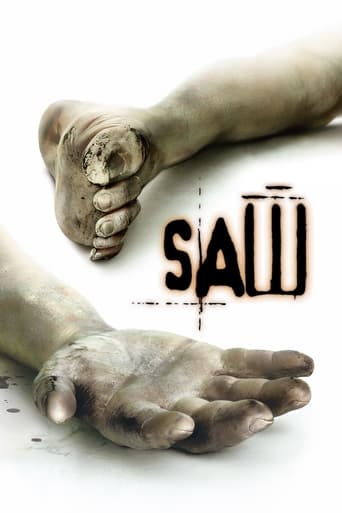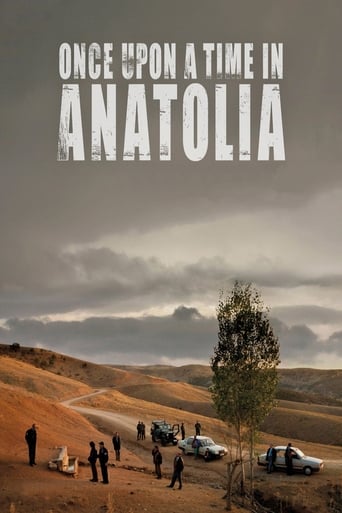
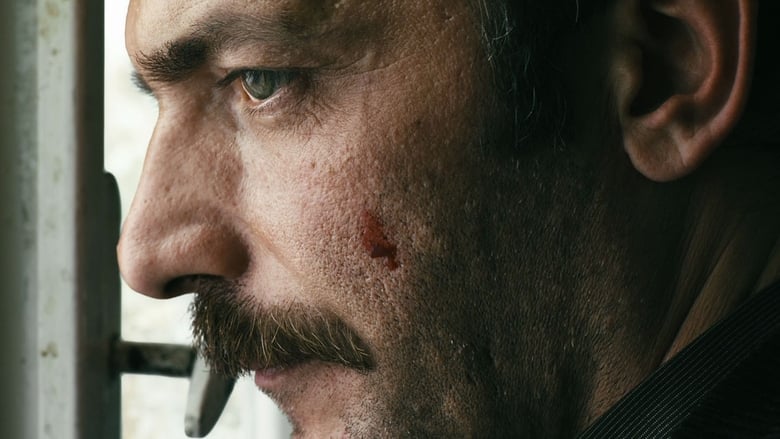
Once Upon a Time in Anatolia (2011)
In the rural area around the Anatolian town of Keskin, the local prosecutor, police commissar, and doctor lead a search for a victim of a murder to whom a suspect named Kenan and his mentally challenged brother confessed. However, the search is proving more difficult than expected as Kenan is fuzzy as to the body's exact location. As the group continues looking, its members can't help but chat among themselves about both trivia and their deepest concerns in an investigation that is proving more trying than any of them expected.
Watch Trailer
Cast


Similar titles
Reviews
A lot of fun.
Great story, amazing characters, superb action, enthralling cinematography. Yes, this is something I am glad I spent money on.
The plot isn't so bad, but the pace of storytelling is too slow which makes people bored. Certain moments are so obvious and unnecessary for the main plot. I would've fast-forwarded those moments if it was an online streaming. The ending looks like implying a sequel, not sure if this movie will get one
.Like the great film, it's made with a great deal of visible affection both in front of and behind the camera.
Film have some people. It has some cars and tree and animal too. There are a story. And there are some problems. I wonder how Turkier think about this movie. I see nothing. I don't live over there. I live over here. I don't watch over there. I watch over here. I watch alone, they is not. What happen ?
Once Upon a Time in Anatolia is a 2011 Turkish movie. A beautifully well-made film. A group of Officers including a Prosecutor, Doctor, Police Commissioner, the Suspect, his Brother and other Officers are in search of the dead body. The suspect has already confessed about the murder and he agrees to show the place where he buried the victim. But, it was not as easy as that. The suspect was drinking that night and it was too dark. It made the group to search one location after another. Too tired and frustrated, the go to rest in a place.The movie is slow but, it will take your heart for sure. Each and every character is well made, well described and beautifully portrayed. Actors have done a great job in making it real authentic. As the film ends, every character is close to us. Everyone has their own story. The movie travels in through a story, but, I was stuck up in another story that the film maker has implanted into my mind. It should have been purposeful.Do not miss this amazing movie. A must watch.#KiduMovie
At just over two and a half hours, this fourth effort by the directorial minimalist master, Nuri Ceylan, will probably deter many viewers. From the fade-in, however, fans of Ceylan will be immediately drawn into - once again almost voyeuristically through a dirty glass window as the scene focuses - the ordinary lives of three men sharing a meal, drinks, conversation and jokes at a run-down garage somewhere in Anatolia. Voices are so muffled we can't hear what is being said. We don't know who these men are.Heavy traffic crisscrosses the scene, occasionally obscuring the view; outside, a dog barks. One of the men picks up food and, as the scene widens to show the darkly brooding night sky crashing with thunder (almost a Ceylan trademark in movies), he takes the food to the dog, gives it a pat, looks around and up, and returns to his meal and the others. Fade to black.Next fade-in (next day? next week? who knows?) at dusk, we see on the horizon, from a high vantage-point, three sets of headlights which eventually stop nearby to disgorge many police and others, perhaps a dozen men in all. In the dimming light, we can just see one of the men is handcuffed. None of the faces are clearly seen. As the story now gets under way, we discover that two of the men are somehow involved in the death of another person, and efforts are now in progress to find a buried body.So ... we settle back comfortably to watch how director Ceylan unravels the mystery for us: the who, what, where, how and why of all good mysteries. All well and good, except for one thing: the real story here is actually not about finding a body somewhere in these Anatolian hills, nor who it is, how and why the death happened, or even when. The real story is certainly about a death, though - an almost unbelievably poignant, pointless death which is revealed and discussed between two of the officials as the whole search party continues to travel through the night, from place to place, up hill and down dale, hour after hour, until eventually, the accused man - who looks familiar - correctly pinpoints where the corpse lies. From there, the body's taken to the local hospital for autopsy and official report. The two accused are taken to the local lockup. By this time, and no longer comfortable, we don't really care much about that issue, that sordid little side affair, whatever it was about. What's more important is the outcome between those two officials who wrestled, quietly vehemently, emotionally and psychologically about guilt, forgiveness and justice through much of the night and into the day. And all of which shows again the creativity and skill of Nuri Ceylan, his actors and his production team in creeping into viewers' minds so effectively. Again.The setting is bleakly appropriate, recalling landscape imagery we saw in No Country for Old Men (2007); but this one uses that type of vista for most of the time. Moreover, the two movies each have no music soundtrack which, for this viewer, is always a welcome omission. The script and acting are simply superb.Nuri Ceylan (and don't forget his wife, Ebru, who helps write and produce) is, IMHO, one of the best directors on this planet; arguably the best I've seen at mood-setting static and long takes, and facial close-ups; and, along with Ebru, brings some of the most innovative stories I've seen in all my 70 viewing years. Together, (if you'll excuse the hyperbole) they're the Turkish Dream Team of Cinema. Long may they continue to develop and produce the highest quality cinematic experience.Recommended for all to see. Give this a well-deserved nine.July 18, 2016.
The echoes of Sergio Leone's classic ONCE UPON A TIME IN THE WEST (1968) in the English title of Nuri Bilge Ceylan's epic movie BİR ZAMANLAR ANADOLU'DA (ONCE UPON A TIME IN ANATOLIA) are deliberate. The bulk of the story takes place in Central Anatolia, some thirty or so kilometers from the capital Ankara. Gökhan Tiryaki's cinematography captures the barrenness of the landscape by day and by night; the scrubland, rugged fauna and flora and harsh, unfeeling terrain suggesting a place that resists human colonization. It is a myth, a state of mind as well as a physical place - as Naci the police officer (Yılmaz Erdoğan) observes at one point, it resembles a "fairytale" that will continue to exist even after all of us have been transformed into dust. Timelessness is its watchword; the only way in which humankind can adjust to it is to accept rather than alter the balance of nature. It can be threatening (especially when the wind whistles through the trees, disrupting the autumn leaves), or it can be accommodating, depending on how we view it.Director Ceylan uses the landscape as the backdrop to a story that appears to follow a logical path and then frustrates us. A group of police officers, together with their suspects (Fırat Tanış, Burhan Yıldız), a doctor (Muhammed Uzuner) and a prosecutor (Taner Birsel) venture into the Anatolian wilds in the hope of discovering the body of a murder victim Yaşar (Erol Eraslan). The suspects are not quite sure of its whereabouts; but when they finally locate the body, it transpires that the police officers' assumptions prove catastrophically wrong.But Ceylan is not really interested in the logic of the murder; what concerns him more is how humankind become so obsessed with the minutiae of their existences that they blind themselves to the power of the landscapes they inhabit. Prosecutor Nusret and doctor Cemal are representatives of two professions dedicated to reasonable explanations of all phenomena, but even they become exasperated at some of the police officers' attention to banal details, such as where the borders between two rural areas have been drawn. All of them are quite literally transfixed by the angelic appearance of the young girl Cemile (Cansu Demirci), who distributes tea among them with such aplomb that it seems as if she has been sent by the deity, rather than by her father the local Mukhtar (or headman) (Ercan Kesal). At this moment Nusret and Cemal realize - perhaps for the first time - that their world is governed by higher, unreasonable powers that transcend the quotidian realities of the law and the medical profession. It is part of their tragedy that they recognize this too late in their lives.The film's ending is truly memorable, as Cemal conducts an autopsy on Yaşar's corpse, and consciously falsifies the evidence. But that issue is not really significant; what matters more is that he is a prisoner, both physical as well as mental, of his profession. He cannot take an innocent pleasure in the beauties of the landscape outside the hospital where he works, but remains bound to the factual realities of his job.As with most Ceylan movies, sound assumes as much importance as vision: the howling of the wolves and the chirping of the crickets reminding us of the presence of a vast natural world outside that of the protagonists; and the truly macabre sound of the corpse being cut up and the blood flowing into a metal bowl, contrasted with the innocent shouts of little children playing in the yard outside Cemal's hospital. ONCE UPON A TIME IN ANATOLIA is a highly subtle movie, not least because of its clever use of names suggesting either some kinship between different characters (Cemal/ Cemile) or, perhaps more negatively, a meaninglessness associated with the practice of naming, especially when associated with the meaning of the Anatolian landscape. Ceylan's film might be long (150 minutes) but it represents a triumphant return to the themes of his earlier work.


